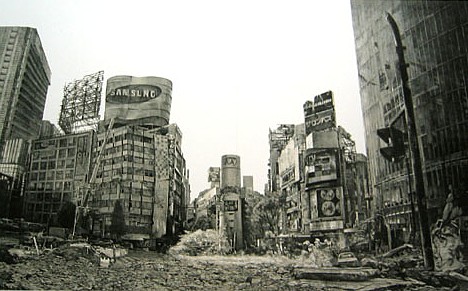The National Geographic Strange Planet "One Degree" video covers how global warming, elevated C02 levels, and raising the earth's temperature just one degree has dramatic changes. Items covered include Porcupine Caribou, zoaplankton, crabs from California's tide pools, and Asthma in the Children on Trinidad.
The video starts out about the plight of the porcupine caribou. It said that cold regions such as Alaska, Canada, and the Arctic have been experiencing warming up up tp 11 degrees. Since 1987, the population level of the porcupine caribou has dropped by nearly 60,000 and that they are slow to recover and fast to crash. Part of the problem is that caribou are ignoring grassy plains and climbing steep bluffs with limited amounts of food. The reason being that they are trying to avoid being mosquito food. Additionally, the warmer temperatures in winter brings more precipitation. That can make hard crusts on the snow that makes grazing difficult. Also, the more snow that there is the more they have to dig to get their food. In recent years, twice in the spring there has been severe blizzards which prevent the caribou from beginning their migration and because of that calves are being born in transit making it difficult for them to survive. There are many types of indigenous people who rely on the caribou as they have for centuries and would be wiped off the planet if they were not allowed to continue in their ways.
Edward Norton said that the planet is likely to warm 3-10x more in the next century than it has in the past century. Might as well buy some land in Canada now. Its about to be the next LA.
The next person studied zoaplankton. They are tiny organisms who live in the ocean and are the basis for the bottom of the food chain. They migrate to the surface to feed at night and then back down in the day time. This journey is equivalent to 250 miles for a human. (I get mad walking to the Union). In the last 50 years only about 20% of the zoaplankton once present can be found in the oceans. Their crash and recovery seems to be linked to the warm and cold cycles of water or "regime shifts" in the Pacific. They zoaplankton do best in cold and worse in warm. I want to go to the Pacific.
The next study was on the effects of warming waters on crabs found on the California coastline. Many species have been migrating north to stay in the cooler water and can no longer be found where they were once located. Several crabs were hooked to heart monitor machines and put in water with rising temperatures. At 2 degrees warmer than the water that they had been living in all the crabs heartbeats stopped. They all died. In just 2 degrees. One I feel bad for the crabs, I love anything with eyeballs up on stakes like that. I guess you must sometimes sacrifice a few in hopes that something can be done to help the others. Two, 2 degrees doesn't seem like a very big difference. Despite the announcer saying that the crabs were very hardy, people don't die in up to a 30 degree temperature difference. Lets say 60-90 degrees, Might be hot or cold but it isn't going to kill you. However I don't think that crabs regulate their body temperature so maybe that is a big factor. Reminds me of two scenarios. A frog in water brought to a boil won't jump out because the change is gradual but a frog put into hot water will sense the heat. Second, when you get a fish you always have to float the bag so the water that the fish is in can adjust to the water of the new tank.
In Trinidad more and more children are being diagnosed with asthma, sea pain, or aspergilis. Aspergelis is a pathogen found in sands of the Sahara. Global warming has contributed to the drying up of Lake Chad that is now only 1/20th of its former area. This is because the North Atlantic Oscillation which has high and low wind pressures has been forced into an intense phase for the last 20-30 years. Some smart guy plugged this into a computer that reads weather cycles and determined the only thing that would make the cycle get stuck is the elevated levels of CO2 in the atmosphere. Multiplying that is the ever warming Indian Ocean which creates storms which sweep even more Saharan sand from Africa to the Carribbean.
This reminds me of the butterfly effect. Which is the theory that killing one butterfly can change the fate of the world. Doing something that seems so small can have an impact around the globe. One of the previous videos or text said that a breath exhaled today can be on the other side of the globe tomorrow. We are one globe. The spaces between us are a lot smaller than we first thought.
